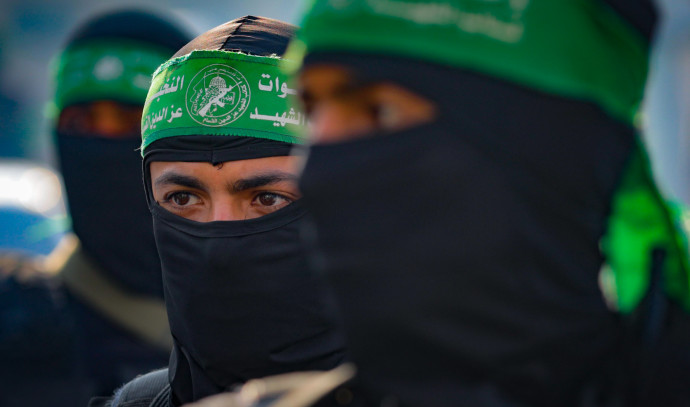Hamas wants the ceasefire to continue into phase two, which is supposed to be discussed as the first phase comes to an end in the coming weeks.
Hamas has gotten used to the ceasefire. Its men are enjoying the sunlight in Gaza and parading in uniforms, rather than hiding in hospitals as they are used to. Hamas now feels secure again. It feels like it weathered the storm of war.
Hamas’s policy is clear because it is saying in its own words that it wants to move to phase two. It wants the ceasefire to continue and so do its backers abroad in Doha, Tehran, and Ankara.
For instance, IRNA media in Iran said on February 18, “Hamas has said that it will release six living Israeli prisoners this week under the Gaza ceasefire and is ready to begin the second phase of negotiations with the Zionist regime.”
Also, according to the report, “Hamas’s chief negotiator, Khalil al-Hayya, has said the Palestinian resistance group is ready to begin the second phase of ceasefire negotiations with the Israeli regime.”
Khalil al-Hayya pictured in 2022. (credit: TASNIM NEWS AGENCY/CC BY 4.0 (https://creativecommons.org/licenses/by/4.0)/VIA WIKIMEDIA COMMONS)
The report went on to note, “Hayya said Tuesday that Hamas would release all six living Israeli prisoners under the first phase of the ceasefire this week, along with the bodies of four dead prisoners.”
For Hamas, this is a self-fulfilling prophecy. It attacked on October 7 because it assumed it could get away with murdering more than 1,000 Jews, the most killed on any day since the Shoah.
Hamas assumes Israel today is not the Israel of the 1950s when Israeli leaders would never have let their kibbutzim be overrun and their soldiers carted off to captivity. Hamas looks at Israel today and it consults with its backers in Doha, Ankara, and Tehran and it assumes the changing world order means that Israel is no longer what it used to be.
Previous Israeli generals may have acted differently
Previous generations of Israeli generals would have defeated Hamas quickly. Those were the generations that won the 1967 war in six days. They also faced terror threats but they dealt with them efficiently and decisively. When terrorists took people hostage at Entebbe, Israel didn’t wait for months, it ordered a raid.
Hamas today assumes Israel is incapable of removing it from Gaza because Hamas thinks that Israel’s leadership fears the Palestinian Authority more than Hamas.
Stay updated with the latest news!
Subscribe to The Jerusalem Post Newsletter
As such, Hamas assumes today that it is in Israel’s interests to keep the ceasefire. This is not only because Israel wants all the hostages home. It is also because Hamas knows Israel needs to say that it also won the war. If both Hamas and Israel can declare victory, then both have an interest in keeping the deal going.
Hamas says it is working with Qatar and Egypt to make sure that the agreement is implemented. Hamas is expecting that heavy machinery will enter Gaza so that it can begin to move rubble and rebuild.
This is in contrast to US President Donald Trump’s statements about how Gaza is a demolition site and people should leave. Hamas wants to do the work and keep the people in Gaza. Hamas has done this before after previous wars.
Hamas is set to release more hostages this week. Some of them are deceased and Hamas knows that Israel will be less inclined to keep going with the ceasefire if Hamas hands over mostly bodies.
Therefore, Hamas will try to make sure that it is able to keep moving forward while not forcing Israel to continue fighting. The first phase of the ceasefire will end on March 1 according to how it was structured. Then a new phase is supposed to begin.
It’s possible there may be some changes and flexibility in this regard on both sides.
Hamas today thinks it got away with October 7. It knows that Israel thrives on the slogan “never again” and it feels it was able to commit another massacre of Jews. It is increasingly self-assured in its statements.
This is reflected in many ways that Hamas behaves in Gaza and the propaganda videos it makes of the hostages. It doesn’t fear any repercussions. It feels it has support internationally and also in various places such as among human rights NGOs that do not condemn its treatment of the hostages.



